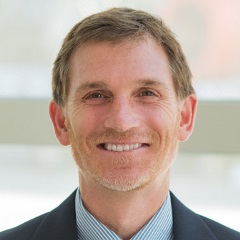Prevention Can Keep Young Athletes Safe from Opioid Addiction
Guardians must be gatekeeper to pain medication prescribed for orthopedic injuries

DAYTON, Ohio (July 9, 2018) – Orthopedic injuries can be very painful, but local physicians are being careful as to when opioids are prescribed to young athletes to prevent potential harm to them and their families.
Pain medications known as opioids may be prescribed to young athletes for significant fractures or when they are recovering from a surgical operation. The most common opioids prescribed to adolescents are Tylenol with codeine, or Norco, which was previously known as Vicodin, said Jon Sulentic, DO, a sports medicine physician with Premier Orthopedics – a practice in which providers serve as team physicians and orthopedic consultants for the University of Dayton, Wright State University, and many area high schools throughout Southwest Ohio.
Pain can be significant when a young athlete suffers a fracture or undergoes surgery, but narcotic pain medication is not always the answer, said Dr. Sulentic, who practices with Premier Physician Network.
“As an example, I have treated four fractures in one day without writing a single narcotic prescription as it was neither required nor desired,” Dr. Sulentic said. “There is not always a need for a narcotic. Often the pain from a fracture can be addressed in other ways such as by casting or immobilizing the fracture. Likewise, post-operative pain is not always relieved with opioids.”
Data now shows that opioids may not always provide the biggest difference for patients dealing with post-operative pain. Instead, anti-inflammatory medications and treatments, such as Tylenol or ice, seem to be the most effective, said Michael Herbenick, MD, an orthopedic surgeon with Premier Orthopedics.
Drs. Herbenick and Sulentic recommend parents and guardians keep these facts in mind if they are caring for an adolescent who’s been prescribed opioids:
Be the gatekeeper – Be the person who handles the prescription for an adolescent and insist that they are not to handle the bottle or dosing by themselves. Make sure you understand the prescription – its purpose, dosage and side effects.
Stick to the prescribed dosage – Keep track of when medication is taken and be careful to administer it according to how it was prescribed. People take prescribed opioids because they are supposed to help their pain, but the reality is that many opioids don’t touch the type of pain that causes orthopedic injuries, Dr. Sulentic said.
“People will use it because they hurt and then when the pain doesn’t go away they will use more and more,” he said. “What people do not understand is that opioids are not actually good orthopedic pain solvers.”
Limited access is key – It’s not too drastic to think of opioids as no different than alcohol. Find a place to store it in your home where it can be locked. Don’t make it easy for your child or their friends to get to the medication.
“Don’t assume a medicine cabinet is a safe place,” Dr. Herbenick said. “A lot of drug abuse stems from written prescriptions that may have been taken from homes. It may just be a pill or two so no one notices anything is gone.”
Be deliberate about disposal – Properly dispose of opioids as soon as you realize the prescription will not be finished. It can be hard to throw away a prescription that may have cost a lot of money, but the risk that it poses by sitting in a cabinet is too high to ignore. Premier Health offers 24/7 disposal options for unused opioids, with medication receptacles installed at many hospital locations.
The best course of action to avoid prescription opioid abuse is prevention, which is why Drs. Sulentic and Herbenick agree it’s often best to not prescribe opioids in the first place.
“We want to be sensitive to people’s pain, but we also need to keep in mind that people do not die from pain,” Dr. Sulentic said. “It’s important to remember that some pain is safer than putting a young patient at risk for overdosing or experiencing a medication-related complication.”
For more information on local efforts to combat opioid addiction, go to opioidassist.com.
Contact Us
Discover more about Premier Health and join us in building healthier communities in Southwest Ohio. Learn more about working at Premier Health, becoming a volunteer, and making a gift to support our mission.

